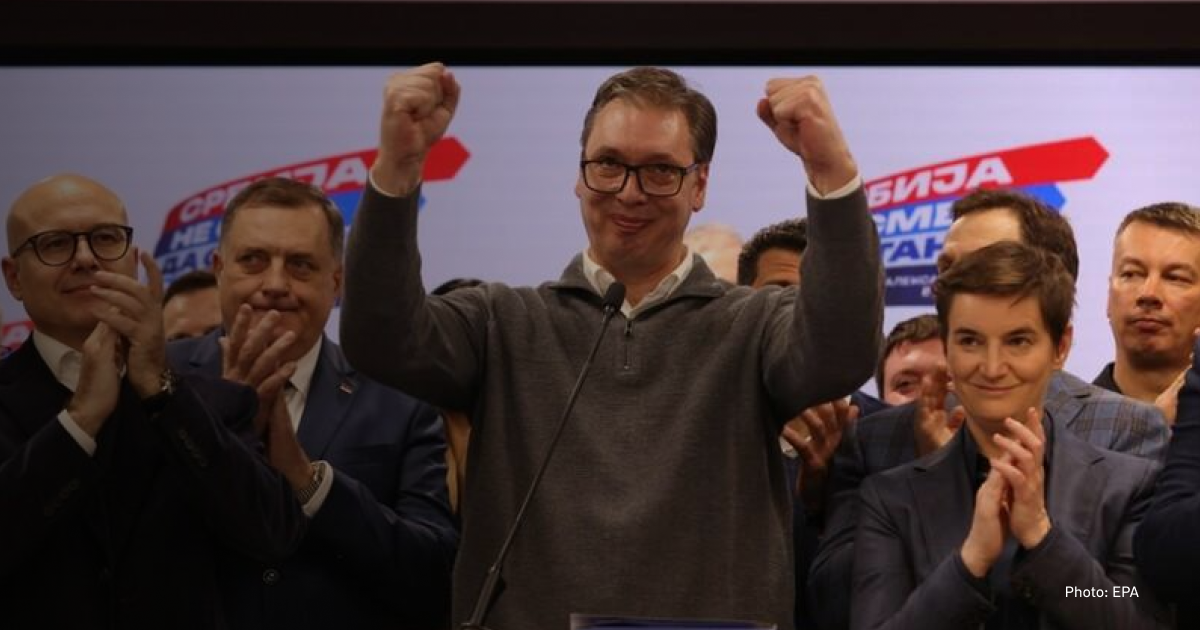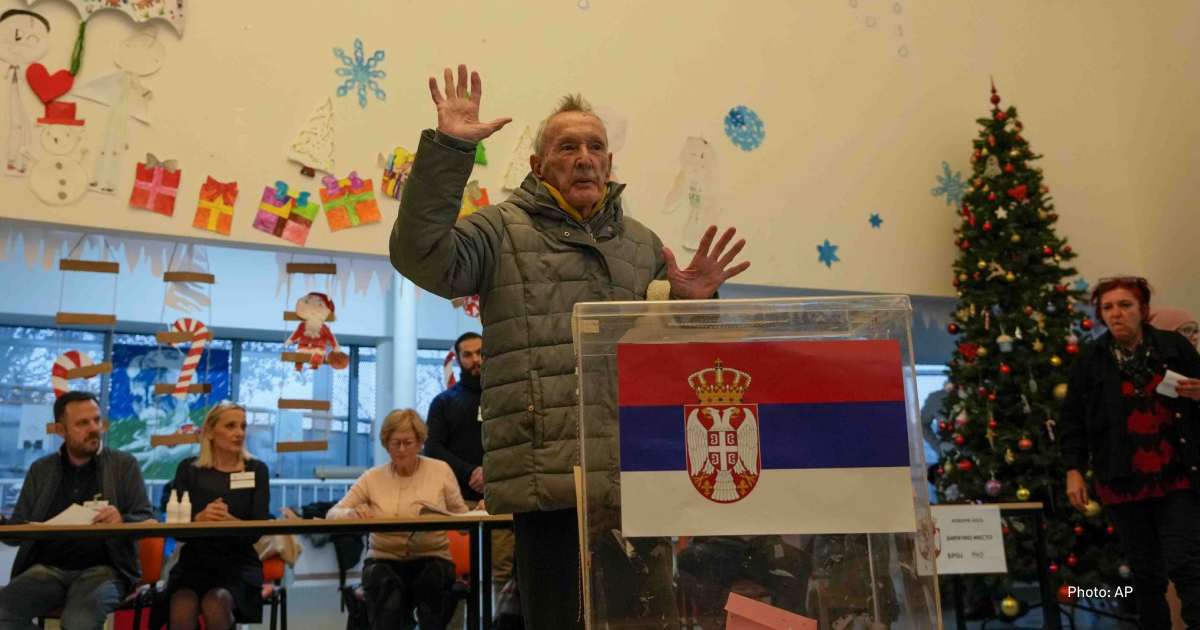According to preliminary estimates, the ruling Serbian Progressive Party wins the elections in Serbia. OSCE finds violations

On December 17, early parliamentary elections were held in Serbia. According to preliminary vote counts, the pro-government Serbian Progressive Party of President Aleksandar Vučić (SNS) is winning.
This was reported by the Serbian state broadcaster RTS.
SNS gained 46.4% of the vote and won 128 seats in the parliament. The opposition coalition Serbia Against Violence (SPN) is in second place.
It includes the Party of Freedom and Justice, the People's Movement of Serbia led by Miroslav Aleksić, the Green-Left Front, and the Srce movement.

Serbia Against Violence is also the slogan under which anti-government protests in Serbia have been held over the past year. It was one of the reasons why the elections were held earlier than planned.
The Serbian Progressive Party (SNS) announced its victory late evening on December 17, even though election officials had just begun counting the votes.
SNS President Miloš Vučević said he was proud of the election results. At the same time, he added that he did not recognise the opposition ideology.
You have to make it clear to the citizens how you will govern the country. And they [the opposition] did not do this,
Vučević said.
Press secretary of the Russian President Dmitry Peskov said that Russia is "closely watching and welcomes" the success of Serbian President Aleksandar Vučić's party in the parliamentary elections.
At the same time, the opposition and domestic observers reported a "record number of violations" and the organised bringing of voters from other countries.
OSCE observers reported numerous violations during the election process.
The decisive involvement of the President dominated the electoral process, and the use of his name by one of the candidate lists, together with bias in the media, contributed to an uneven playing field,
said Reinhold Lopatka, the leader of the observer mission.
In particular, the observers noted the misuse of public resources, lack of separation between official functions and campaign activities, and pressure on voters, including cases of vote buying.
We call on the competent authorities to investigate properly,
said Klemen Groselj, head of the European Parliament delegation, referring to the entire electoral process.
Earlier, Svidomi reported on why Serbia dissolved the government and called early elections, as well as on the parties that were candidates for parliamentary seats.


